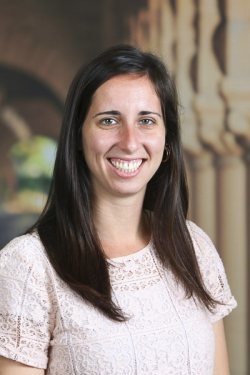
My interest in International Education began as an undergraduate at UC Berkeley where I studied Anthropology and Education. After graduating from UC Berkeley, I became a Fulbright Fellow during which I taught English at a secondary school in Malaysia. After returning from Malaysia, I applied what I had learned in my education and training to implement culturally relevant educational programming for the Boys & Girls Clubs of San Francisco, a non-profit that serves students from low socioeconomic backgrounds.
My work as an education practitioner was the driving force behind my desire to pursue the IEPA Master’s degree at Stanford. I wanted to further develop the skills necessary to become a leader in bringing innovative and culturally relevant ideas to international education reform. At the Stanford Graduate School of Education (GSE), I took courses in quantitative and qualitative research methods, survey design, and education policy, among others. These courses gave me skills that I have continuously used in my professional work since graduating.
My most notable experience in the IEPA program was writing an academic paper, from start to finish, that could be submitted for publication. For my Master’s thesis, I conducted a case study exploring the role that self-efficacy plays in the development of adolescent girls’ career aspirations in STEM. Through the process of writing my thesis, I learned how to structure an academic paper, create a conceptual framework, write a literature review, develop and implement an interview protocol and survey, conduct qualitative and quantitative analysis, and present my findings in a report that could be published. This was all possible thanks to the help of Dr. Wotipka, Dr. Bromley, and Dr. Kijima. While I graduated in 2018, I have continued to work with Dr. Kijima on the research we began while I was at the GSE.
I realized just how much I had learned in the IEPA program when I graduated and began applying for jobs. I found that, due to my coursework and experience writing my thesis, I was very qualified for positions at education research organizations. Soon after graduating, I obtained a position as a Research Manager at Empirical Education, a research firm based in San Mateo, California. There I supervised the complete research cycle for randomized control trials and quasi-experiments evaluating the efficacy of educational programs implemented in diverse educational settings across the country.
After working as a Research Manager at Empirical for 2+ years, I wanted to explore what working at a larger research organization was like, so I obtained a position as an Education Research Associate at SRI International where I currently work. I evaluate the effectiveness of various educational programs that are largely funded by the U.S. Department of Education. In this position I write literature reviews, develop and administer interview protocols and surveys, conduct qualitative analysis, and draft report findings. I continue to be surprised by how relevant the work I did in the IEPA program has been to my professional career.
Lastly, I will mention the amazing and intelligent people I met in the program. They continue to be my good friends today and have all gone on to do really interesting work in the education sector. I have gained so much from having a network of people who share similar interests and goals. It is not only the people I befriended while at Stanford, however, that have impacted me. After graduating, I found there was a huge network of other graduates who were eager to connect. There have been many times that I reached out to an IEPA graduate that came before me to see if we could chat about their job and career path. They have always been eager to connect and very willing to offer advice.
I love the work I do in education research and am very grateful to the Stanford Graduate School of Education and IEPA program for helping me find and pursue this career path.